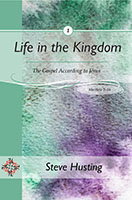When Paul made an argument for his faith in Acts 24:10-21, he affirmed his belief that both the just and the unjust will be resurrected (24:15). What is the resurrection of the just and the unjust? When we encounter a doctrine in the Bible that isn’t well-developed in our minds, we may change the words a bit to make the verse fit our theology better. In the case of the resurrection of the just and the unjust, we may adapt it to our way of thinking by making it say, “the resurrection of the saved and the unsaved,” or “the resurrection of the believers and unbelievers.” (This makes us feel good about ourselves, too.)
We tell ourselves that Jesus saved us and imputed His righteousness to us, so we are among the “just,” which means righteous ones. Because we are saved, we Christians will surely be resurrected or raptured, and all the unbelievers left behind. I will touch more on this later.
If this thinking were true, then Paul’s next words would not make any sense: “I exercise myself, to have always a conscience void of offence toward God, and toward men” (24:16). I used to take it for granted that because I am saved, I would make the first resurrection. But Paul saw two resurrections, not of the saved and unsaved, but of the just and unjust. They are not the same thing. “Just” does not mean “believer” or “saved.”
The just is the person who does righteous works. He is faithful in his duties (not just doing enough to get by), his word is trustworthy (not saying one thing and doing another), he helps the poor (not take advantage of them), speaks words that help (not cutting words of pride, hate, or gossip), and is a cheerful giver (rather than a miser or covetous). This is a random compilation of acts of righteousness from the Old Testament.
Can you look at yourself and fellow Christians and say that we are all “just”? Do we all live according to the biblical usage of this word: Are we “upright, righteous, virtuous, keeping the commands of God”? Just does not mean saved, so the words are not interchangeable. Just refers to the conduct and character of the person. Because the Bible uses the word “just” and not “saved,” Paul saw that our character matters.
So he did not rest on his salvation, but did everything in his ability to live a life free from sin. This tells me that God has lofty ideals for a just one. Paul wanted to make sure that he was in the resurrection of the just – those who lived by faith and love by the power of God. As the African-American spiritual puts it, “Lord, I want to be in that number when the saints go marching in.” Is this our driving aim in life, or are we cruising to an uncertain end?
But according to the book of Romans, aren’t Christian believers righteous by faith? This is not the practical righteousness of a person’s character, but imputed righteousness. We should consider these two points about it:
1) Due to God’s imputed righteousness given to me, I no longer need to struggle in my works to make myself worthy or “good” to God. With imputed righteousness, I can live for Him out of gratitude and love. No bargaining with God needed; God has swapped my sin for His Son’s righteousness!
2) When we read passages on God’s judgment, we find that he will judge us according to our works of faithfulness, not our beliefs or imputed righteousness. Both the faithful and unfaithful can have imputed righteousness. Which one do you want running the store in your absence, one who follows your instructions with care, or one who merely agrees that your instructions are just and fair, but follows them only a little now and then? Which one truly shows a just character? Which one are you with the things of God?
Jesus died and rose again to give us the power to live a crucified life that reckons the flesh dead to sin (Romans 6), and empowers a life of holy service to Him. God’s goal is to change us into people who are in character like His Son (Romans 8:29). This doesn’t happen apart from our participation and cooperation in His work. It doesn’t happen apart from being real about our weaknesses and failures. A just life is no accident; it’s not an automatic byproduct of salvation. Practical righteousness blossoms from the seeds of sanctification.
Some Christians believe that the whole church will make the Rapture when it occurs, yet we see in Matthew 25-26 that even the Rapture is conditional. If we are “faithful” (Matthew 24:42-51) we will be ready; if not, we won’t. If we are “wise” (Matthew 25:1-13), we will make it; if not, we won’t. Nowhere in these chapters on readiness for the Lord’s coming is mentioned that being saved is enough. Character matters.
Paul himself labored to make sure his body was disciplined lest he be disqualified (1 Corinthians 9:24-27), then spends a whole chapter after that to explain what he meant: that if we let the flesh rule, we will be disqualified from entering the glories of the kingdom just as the disobedient Israelites were disqualified from entering the Promised Land (1 Corinthians 10).
There is no reason to suppose that all Christians will unconditionally be part of the first resurrection, the resurrection of the just. After all, little else in our Christian walk is unconditional — except for God’s love. Our forgiveness is not unconditional; we must forgive to be forgiven (Matthew 6:14-15). Our spiritual growth is not unconditional, else why would Paul despair of the Galatian church which had turned from faith to law (Galatians 3:1-4)? Our holiness is not unconditional or automatic, otherwise Peter would not command us to be holy (1 Peter 1:15).
Character matters. Acquaint yourself with the character of the just:
For this very reason, make every effort to supplement your faith with virtue, and virtue with knowledge, and knowledge with self-control, and self-control with steadfastness, and steadfastness with godliness, and godliness with brotherly affection, and brotherly affection with love.
For if these qualities are yours and are increasing, they keep you from being ineffective or unfruitful in the knowledge of our Lord Jesus Christ.
For whoever lacks these qualities is so nearsighted that he is blind, having forgotten that he was cleansed from his former sins.
Therefore, brothers, be all the more diligent to confirm your calling and election, for if you practice these qualities you will never fall. For in this way there will be richly provided for you an entrance into the eternal kingdom of our Lord and Savior Jesus Christ.
— 2 Peter 1:5-11
If being saved meant simply trusting Christ for salvation some years ago, why would Peter tell us to grow up as people with sterling character? Peter answered this question above: 1) Because we’ll know the Lord better. 2) We are proving through a just life that we are indeed among the elect, those chosen above others who will be worthy of the first resurrection and to be entrusted with thrones to reign with Christ (Revelation 20:4-6).
For more about what the Bible says about the character Christ wants to see in His bride when He comes, get my free iPhone app, Ready for a Reward.






